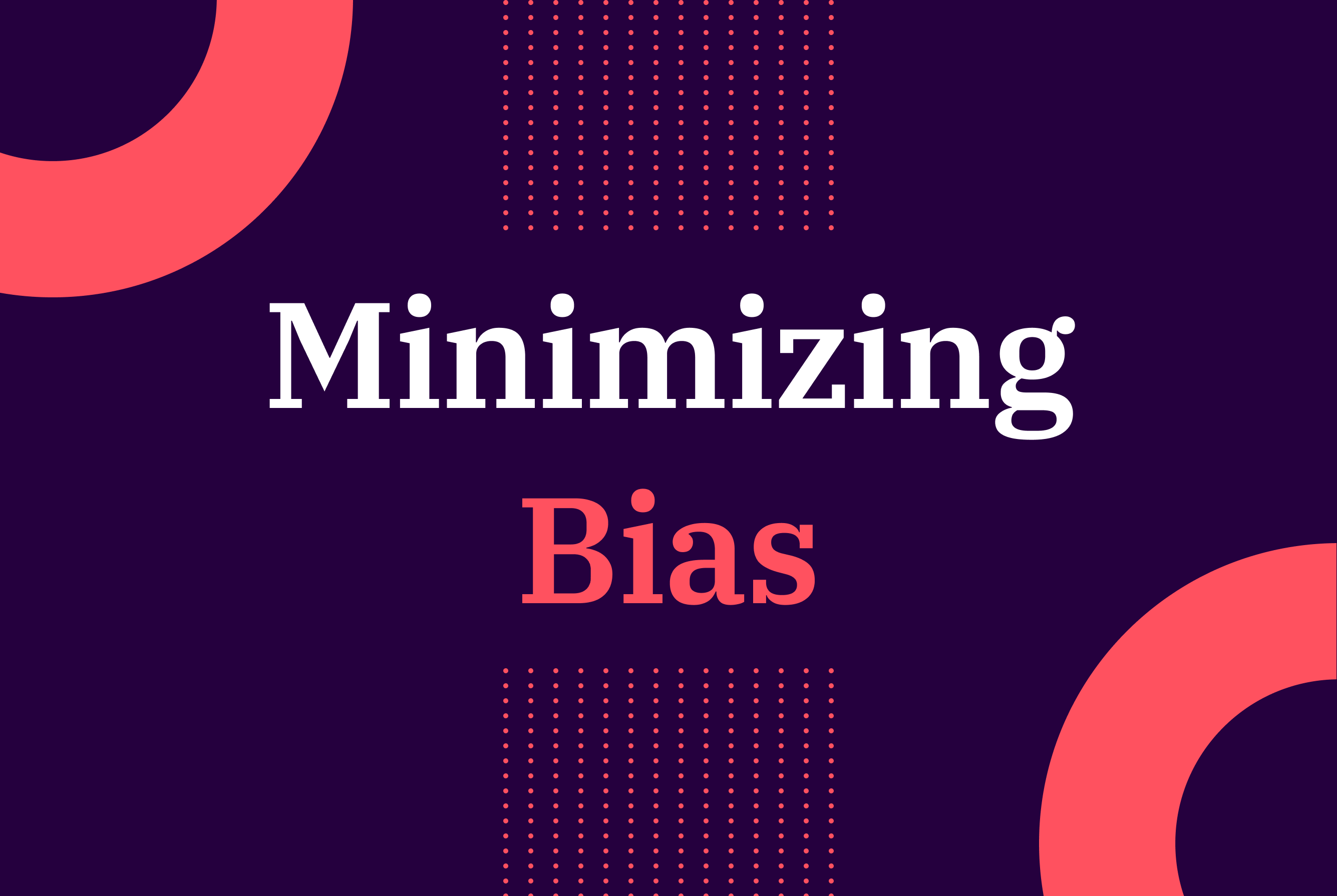Table content
In today’s data-driven world, it’s crucial to ensure the integrity of your research, assessments, and experiments. One of the most significant threats to accuracy and reliability is bias. Whether you’re designing a survey, conducting an assessment, or running a clinical trial, understanding and minimizing bias is essential to achieving trustworthy results.
Let’s dive into what bias is, why it matters, and how you can work to reduce it in your surveys and data.
What Does Minimizing Bias Mean?
At its core, minimizing bias means reducing the influence of personal, cultural, or systematic prejudices that can distort results. Bias can skew data, lead to inaccurate conclusions, and ultimately undermine the validity of your findings. For anyone conducting academic or analytical surveys, the goal is to strive for objectivity rather than biased opinions.
This is crucial for several reasons:
- Accuracy: Ensuring that your findings accurately represent the real-world situation you’re studying
- Credibility: Building trust with stakeholders, clients, or the public
- Ethical Responsibility: Upholding the integrity of the research process and respecting the subjects involved
But no matter how carefully you craft your survey questions, it’s still possible that bias can creep into your research and data. To help our LimeSurvey users better understand the ways bias can affect their work, here are a few area-specific best practices you can use to minimize bias and ensure your results are as objective and accurate as possible.
How to Minimize Bias in Research
Whether you’re conducting academic research or gathering information for your R&D team, here are some strategies and best practices to reduce it.
Strategies to Minimize Bias
- Random Sampling: Use random sampling techniques to ensure each individual has an equal chance of being selected.
- Blinding: Implement blinding in your study to prevent participants and researchers from knowing critical details that could influence their behavior or interpretation.
- Standardized Procedures: Apply uniform procedures across all phases of your research to maintain consistency.
Best Practices for Reducing Bias
- Pre-Registration: Clearly outline your research methods and hypotheses before starting the study.
- Pilot Testing: Conduct an initial test (or tests) to identify potential sources of bias early on.
- Peer Review: Engage in peer review processes to gain feedback and spot any biases you might have missed.
How to Minimize Bias in Assessments
Assessments, whether pedagogical, psychological, or organizational, need to be free from bias to ensure fairness and accuracy.
Here’s how to ensure your results are as accurate as possible.
Techniques to Minimize Bias
- Objective Criteria: Use clear, objective criteria for evaluation.
- Training: Train assessors to recognize and mitigate their own biases.
- Multiple Raters: Incorporate multiple raters to balance individual biases.
And there are a couple of ways you can ensure fairness in your assessment practices, too:
- Diverse Teams: Include a diverse team of assessors to minimize group-specific biases.
- Anonymous Grading: Where possible, use anonymous grading to avoid bias based on the assessor’s knowledge of the individual being assessed.
Minimizing Bias in Experiments and Experimental Design
Experimental design can be particularly susceptible to bias—but there are ways to keep it in check. Here are few guidelines and tips you can employ:
- Control Groups: Use control groups to compare results and identify external variables.
- Random Assignment: Randomly assign participants to different conditions to prevent selection bias.
Practical tips for bias reduction can include:
- Double-Blind Design: Implementing a double-blind design where both the participants and the experimenters are unaware of key aspects of the study.
- Regular Reviews: Regularly review your experimental design for potential biases.
How to Minimize Bias in Clinical Trials
In clinical trials, minimizing bias is crucial for ensuring the results are valid and reliable as bias can lead to incorrect conclusions about the efficacy or safety of treatments, which can have significant consequences for patient care and public health. Here are two methods that can help:
- Randomization: Randomly assign participants to treatment or control groups to minimize selection bias.
- Blinding: Use blinding to ensure that neither participants nor researchers know which treatment is being administered.
How to Minimize Bias in Qualitative Research
Qualitative research aims to understand phenomena from a holistic perspective, so minimizing bias is key to achieving genuine insights. Try these approaches to help minimize bias as much as possible.
- Triangulation: Use multiple data sources or methods to cross-verify findings.
- Reflexivity: Examine your own potential biases and how they might influence the research. Then, make adjustments as needed.
Maintaining Objectivity in Qualitative Studies
- Member Checking: Have participants review and provide feedback on findings to ensure accuracy.
- Detailed Documentation: Keep thorough records of your research process to allow for transparency and reproducibility.
Minimizing bias is a fundamental aspect of conducting credible and reliable research, assessments, and experiments. By adopting these strategies and best practices, you can enhance the integrity of your work and contribute valuable, unbiased insights to your field. Remember, the goal is not just to avoid bias, but to strive for clarity, fairness, and accuracy in every step of your research process.
With LimeSurvey’s tools that anonymize responses, randomize participant selection, comply with data privacy regulations, and report findings in real time, you’ll be well on your way toward minimizing bias in your research and findings.




